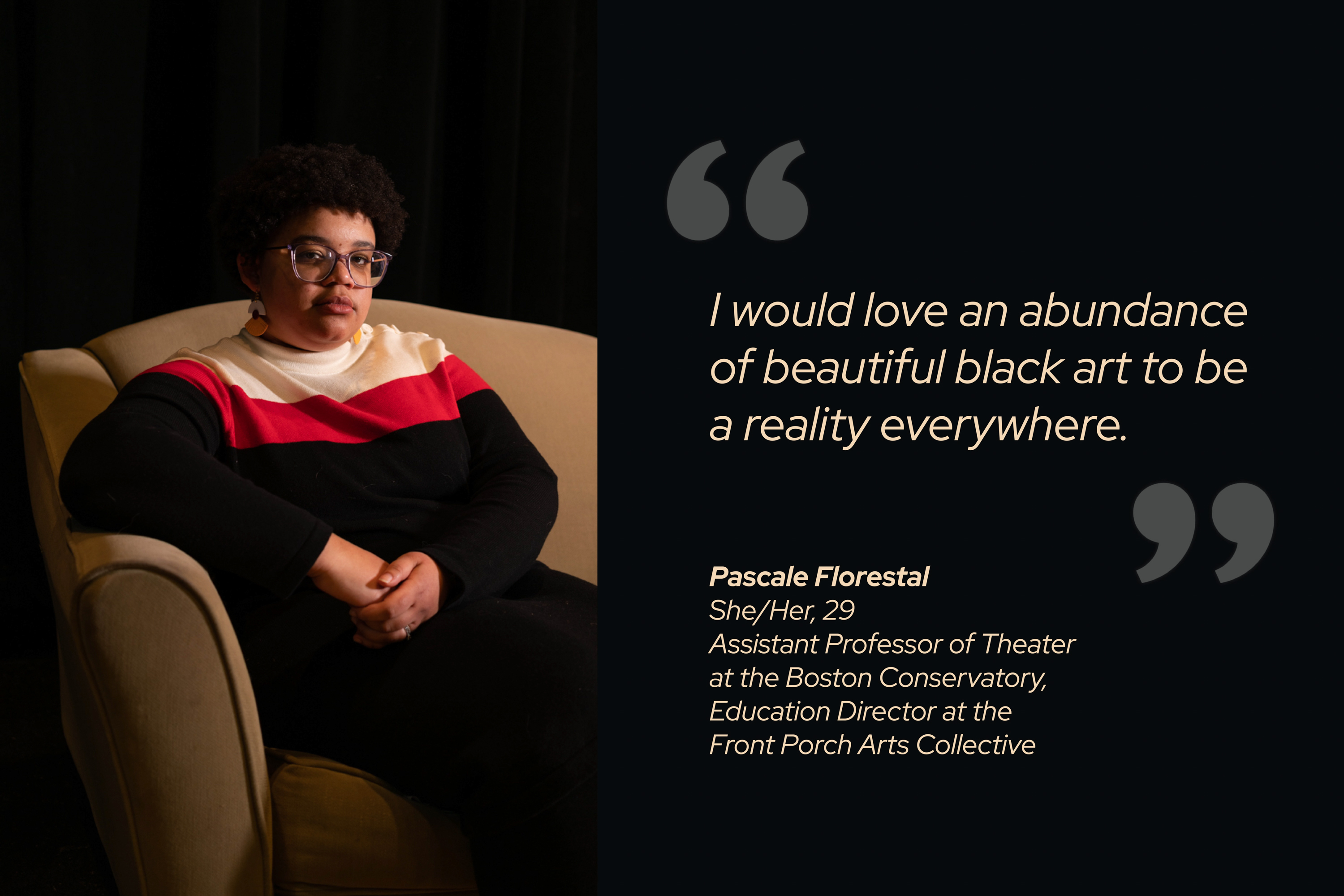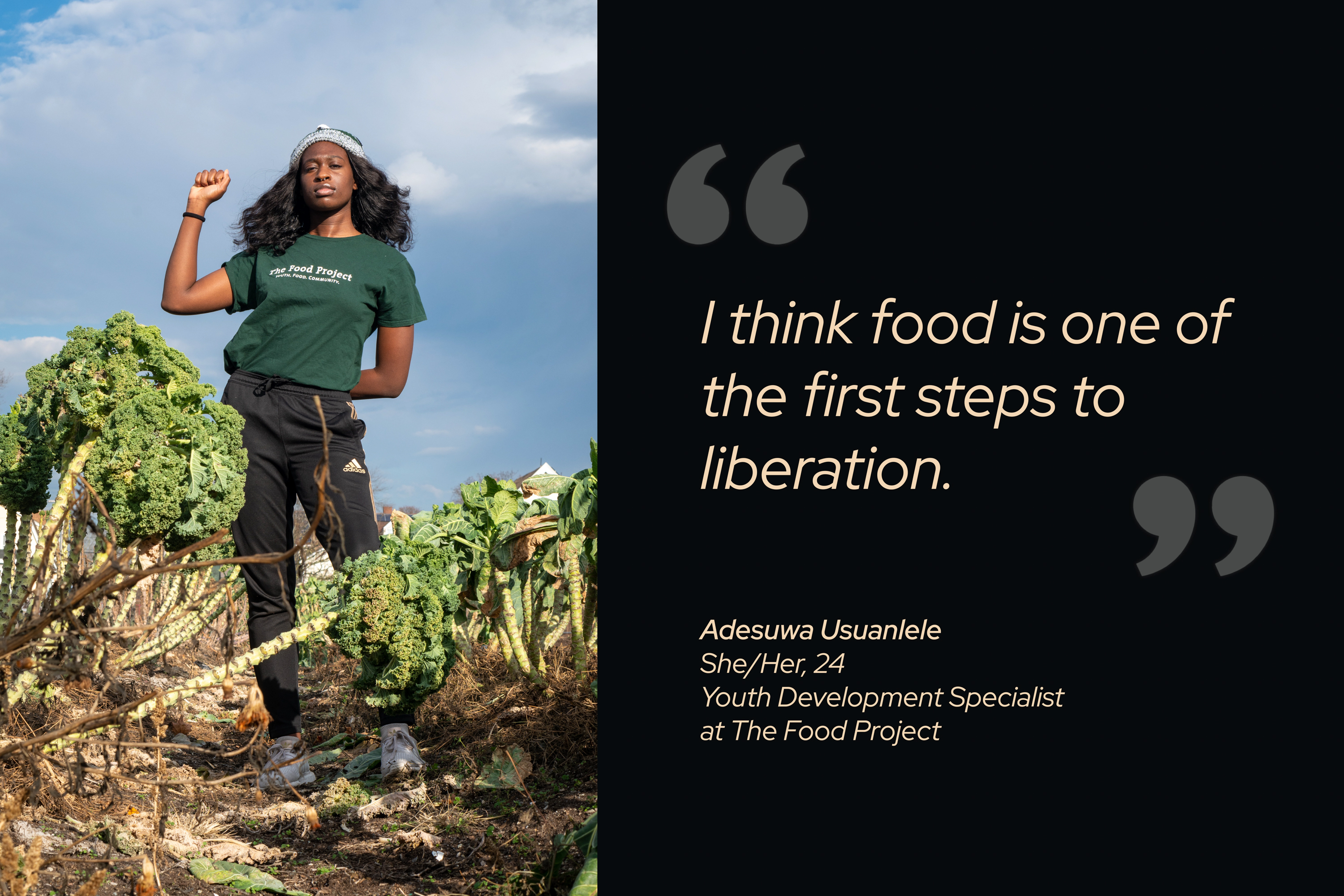Based in New York, NY
vanessaleroyphoto@gmail.com
Alongside the march for justice:
Black women’s activism in the workplace

All modes of activism are necessary and equally important in sustaining an ongoing civil rights movement. This photo story highlights several Black women in the Greater Boston area who are engaging in social justice within their workspaces through their innovative ideas, unique perspectives, and community driven initiatives.

Dawn Meredith Simmons is the Artistic Director of the Front Porch Arts Collective, Executive Director of StageSource, Co-Artistic Director of New Exhibition Room, and a founding member of the Small Theatre Alliance Boston. Through the theatre productions and artistic collaborations she is involved in - Dawn is committed to inspiring wonder, uplifting local artists and arts organizations, and offering spaces for communities of color to see their stories reflected on stage.

Pascale Florestal is the Assistant Professor of Theater at the Boston Conservatory, Education Director of the Front Porch Arts Collective, as well as a freelance director and dramaturge. Theatre is historically a white-dominated industry, and through her roles in artistic education, Pascale aims to remind marginalized communities that there is room for them in the arts industry and to not be afraid to take up space.

Joann Thelusma is a certified birth and postpartum doula, owner of both Aila Birth Village and Here We Grow Co., an Advisory Board Member for Partners In Contraceptive Change and Knowledge (PICCK), and creator of Literature in Couleur (a multicultural children’s bookstore set to launch in 2021). As racial disparities in pregnancy-related deaths continue to persist, all of Joann’s endeavors can be traced back to her goal of strengthening families within Boston and beyond through her culturally sensitive birth and family planning support.

Adesuwa Usuanlele, the Youth Development Specialist for the Root Crew at The Food Project’s farm in Lynn, believes that food justice is social justice - and she civically engages with the youth farmers to illustrate the importance of food security for community advancement. Lynn is designated as a food desert, and Adesuwa is dedicated to connecting the youth to the land and their community in order to increase food access to those who need it most.

Wandy Pascoal, a Housing Innovation Design Fellow at the City of Boston in partnership with the Boston Society for Architecture, is responsible for creatively thinking about ways to generate more affordable housing opportunities for folks in the city. Through listening to the stories of the Boston community and providing them with platforms to advocate for themselves and their needs, she is able to re-imagine a more equitable future for the city.

Tonysha Taylor, the Director of Diversity, Equity and Inclusion (DEI) at the Massachusetts Legal Assistance Corporation works to challenge the discomfort of talking about race in legal services and to encourage the naming of racism when it shows up in order to better serve the community and to create more equitable workplace cultures. By facilitating workshops (such as the “Amplifying Unheard Voices Series” in partnership with the Boston Bar Association), assisting with staff recruitment and hiring with a focus on retention and supporting DEI work at MLAC and its grantee organizations, Tonysha illustrates the importance of amplifying and affirming unheard voices in order to strengthen the community and workforce.

Patricia Swansey saw the positive impact that community-based organizations could have within the Black community while growing up in the inner city of Chicago in the 60s and 70s. However, she noticed that those organizations often struggled due to insufficient funding. Thus, she chose philanthropy as a career choice to influence the direction of funds towards marginalized communities. As the Program Director at the Massachusetts Legal Assistance Corporation, Patricia evaluates the civil legal aid organizations that receive funding from MLAC to provide legal services to low-income people and help them transform their lives.

As 2021 begins, one of the many lessons that can be taken away from 2020 is the importance of uplifting one another. These women serve as great inspirations for how to proceed into the new year and turn advocacy for justice into a daily practice. There is no one pathway to liberation, and these women are shining examples of how one can engage in activism within the spaces they have access to. Their actions continuously forge pathways which lead to equity for marginalized people, and their commitment to social justice lays the foundation for a stronger community.
